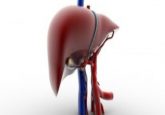Tumors more susceptible to PARP inhibitors due to presence of ARID1a mutations

Common in many cancer types, mutations in ARID1a allow a cancer to progress by disrupting DNA damage repair in cancer cells. According to a team of researchers at the University of Texas MD Anderson Cancer Center (TX, USA), when treating certain tumors, this gene may also be an Achilles’ heel. The results were published recently in Cancer Discovery.
Within the study, certain mutations in ARID1a, which was recently implicated in cancer progression, were linked with the sensitizing of some tumors to PARP inhibitor drugs, including olaparib, veliparib and BMN678.
“Our results showed, particularly in the ARID1a deficient cells, PARP inhibitors are more effective than in other cancer cells,” explained Guang Peng (University of Texas MD Anderson Cancer Center), senior author of the study. “Based on the mechanism we’ve discovered, we propose a new approach for targeting these mutant cancer cells.”
According to The Cancer Genome Atlas, ARID1a is regularly mutated in many cancer types, and over 50% of clear cell carcinomas (a subset of ovarian cancer) contain alterations in this gene. Uterine endometrioid carcinoma, gastric cancer, hepatocellular carcinoma and breast cancer are other examples of cancers in which a high ARID1a mutation rate is found.
ARID1a forms part of a group of proteins that work to rearrange chromatin, termed the SWI/SNF complex. The complex also allows cellular machinery to make repairs by reorganizing chromatin when DNA is damaged. Cancer cells lose some ability to sense and correct DNA damage when ARID1a is lost or mutated.
The precise mechanism by which ARID1a plays a role in DNA damage response was identified for the first time in this study. The results indicated that ARID1a helps organize the DNA structure at the damage site by interacting with ATR, a protein with well-known roles in damage repair.
When ARDI1a function is compromised, the efficiency of DNA damage repair is reduced and cancer cells become more sensitive to therapies, such as PARP inhibitors, which disrupt critical repair pathways further.
Through the use of cancer cell lines and mouse models it was demonstrated that PARP inhibitors are significantly more effective at killing tumor cells harboring an ARID1a loss or mutation.
Due to these results, ARID1a can be added to a group of genes that confer a selective lethality to PARP inhibitors when mutated, such as BRCA1 and BRCA2.
For clear cell carcinoma, where standard treatment is not as effective as in other ovarian cancer subtypes, this could represent a major therapeutic target. The study also highlighted the importance of the utilizing genomic information in guiding cancer therapy and identifying more precise treatments for individual patients.
It should, however, be borne in mind that as not all ARDI1a mutations are the same, they will not all impact its functions in the same way.
“We need to identify which regions of this protein are critical for DNA damage response and repair, asnot all patients with ARID1a mutations will be sensitive to PARP inhibitors,” commented Peng.
Going forward, the team intend to focus on classifying the essential mutations that are sensitive to PARP inhibitors as well as investigating additional ways to selectively target cells with mutations in ARID1a or alternate members of the SWI/SNF complex.
Sources: Shen J, Peng Y, Wei L, et al. ARID1A Deficiency Impairs the DNA Damage Checkpoint and Sensitizes Cells to PARP Inhibitors. Cancer Discovery, DOI: 10.1158/2159-8290.CD-14-0849 (2015); The University of Texas MD Anderson Cancer Center press release





